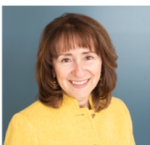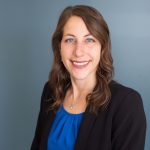[1] Imagine if Martin Luther had never shared his very distinct perspective in 1521. And imagine if no one had listened to him or was willing to engage in conversations about his ideas and viewpoint. Daily, we are faced with opinions, values, beliefs, and ideas that are different from our own. These interactions go a variety of ways – respectful dialogue, bitter arguing, and passive aggressive indifference are just a few examples. People take risks in sharing their thoughts and opinions. Thank God, Martin Luther was brave enough to trust the Holy Spirit in his heart and inspire the creators of what became the Lutheran church. Thank God that other people were open to his perspectives.
[2] There are millions of ways to participate in sharing Jesus’ love. Mr. Albert F. Siebert’s way was dedicating his wealth to helping others through establishing the Siebert Lutheran Foundation. The Siebert Lutheran Foundation has honored Mr. Siebert’s commitment to grow the kingdom of God and share the Gospel by supporting Lutheran ministries and projects in the three prominent judicatories in Wisconsin – WELS, LCMS, and ELCA.
[3] As a private, independent foundation, Siebert’s grant-making to all three Lutheran judicatories has allowed shared learning in regard to best practices for accomplishing important initiatives and helping countless people in the Lutheran community. The collaboration has also exponentially increased the impact individuals can have, by working together with Jesus Christ as our North Star.
[4] WELS, LCMS, and ELCA Lutherans are woven together by the redemptive love and salvation of Jesus Christ, freely offered to all of God’s children. A common faith in this redemptive love opens our hearts to explore lessons learned from working in a pan-Lutheran context. This is the foundation for Siebert’s grant-making, governance, and convenings.
Governance of a Pan-Lutheran Private Foundation
[5] Mr. Siebert was a member of one of the predecessor bodies of the ELCA. When Siebert Lutheran Foundation was first established in 1952, it was comprised of Mr. Siebert’s industry colleagues. Yet, Mr. Siebert’s directive for granting funds was never limited to one specific association of Lutherans. Over time the Foundation’s directors intentionally created a pan-Lutheran Board to properly represent the three largest Wisconsin Lutheran denominations – WELS, LCMS, and ELCA.
[6] Siebert’s staff and Board of Directors use the tidy description of “pan-Lutheran” to describe how we are governed and what we fund. However, navigating this unique context among three Lutheran judicatories that in some ways are quite different brings challenges, along with an abundance of opportunities.
[7] Nearly 70 years have provided many situations for Siebert’s Board of Directors to practice how to function as a pan-Lutheran Board including making necessary compromises to ensure the Board is honoring Mr. Siebert’s legacy while upholding their own Christian values.
[8] A long-term director recently said, “We try to leave our distinct Lutheran denominations at the door and make decisions that are in the grantee’s and Siebert’s best interest.” This requires robust dialogue and a willingness to listen to other perspectives. Compromise and a sense of humor are two important elements. But the most important piece of the puzzle is a commitment to follow Mr. Siebert’s last will and testament, which quotes Matthew 25. Being a servant leader, who feeds the poor and visits the prisoners, requires listening to God’s calling, including offering unconditional love to your neighbor, regardless of differing opinions.
Grant-making to All Three Lutheran “Flavors”
[9] Grant requests from Siebert’s Lutheran grantee partners seem to specialize in certain parts of growing the kingdom. For example, WELS organizations excel in new church plants, innovative projects, and education, with evangelism as its expertise; LCMS organizations have successfully created new models and a niche in K-12 education; and ELCA organizations thrive by showing Jesus’ love through serving ministries and pioneering innovative church models. Each denomination’s “synod” or “district” carries out its mission distinctly and to the glory of God.
[10] There was a time when Siebert’s Board paid special attention to which Lutheran denomination a grantee was affiliated with. But over the years, Directors have turned their attention more pointedly to the work that the grantee partner is doing and how that work shares and shows the Gospel through that work.
[11] Siebert does not view its grantee partners as members of denominational silos. Because of its history, Siebert is well connected across the Lutheran community. This interconnection enhances how we connect organizations to each other and other resources, which may ultimately increase the number of people served through these ministries.
[12] New collaborations and ministry growth have resulted from Siebert’s involvement in sharing best practices and encouraging ministries to learn from each other. Innovative models have raised the bar and now transcend Lutheran denominations to the more practical objective of creating collective impact together.
[13] It has become clear that our grantee partners value the distinct perspectives that foster and facilitate deep dialogue and problem-solving. Society’s root causes of poverty, social determinants of health, food insecurity, academic achievement gaps, and a diminishing church body, are issues that need a “village” to address. This can only be accomplished through an openness to collaborate with others who may bring rich perspectives that are different from one’s own.
[14] Most recently, Siebert collaborated with all three synods to fund a “digital reformation,” an initiative named by the three church bodies to build churches’ capacity to share God’s word in new formats and platforms, regardless of the existence of a pandemic. This collaborative is based on all three denominations’ love of Jesus Christ and a respect that each judicatory has its own way of reflecting and sharing the Gospel.
[15] Grantee partners within each denomination are distinct, and in their distinction each adds new dimensions to the three “flavors.” While these Lutheran organizations each have their own parameters, requirements, and beliefs, they are serving God’s kingdom. Imagine if Siebert only granted to one denomination; think of all the innovations we would miss!
[16] Over the last 70 years, Siebert has granted more than $135 million to grantees affiliated with these three Lutheran denominations. As we reflect on that investment, the Foundation’s next step is establishing a more robust outcome measurement system to consolidate and articulate the impact Siebert’s funding has had on the work of our grantee partners. While the distinct Lutheran organizations each have different pathways to accomplishing their missions, there are unprecedented similarities among the outcomes they are hoping to achieve. Common goals can lead to the most unexpected collaborations.
Connecting Dots Across Pan-Lutheran Communities
[17] With nearly 70 years of experience granting to the three Lutheran denominations, Siebert has a unique position to see all the amazing work that is occurring in the Wisconsin Lutheran community. The grant projects we fund help us learn what works and what does not work. From innovative church plants to sophisticated institutions of higher education, it is evident that listening to and collaborating with the broader community is one of the primary predictors of project success. Being privy to the details of so many projects has made Siebert a thought leader in Lutheran grantmaking, naturally followed by the role of dot-connector for people, ideas, resources, and communities.
[18] In addition to our grantmaking, another way we listen is through Siebert’s annual conference, Inspired to Thrive, formerly known as the Change or Die Conference. Through this conference, Siebert convenes a pan-Lutheran audience to share best practices, learn from others, and listen to new ideas. We seek to learn from subject matter experts from all three Lutheran denominations. The conference is not focused on doctrine or Biblical exegesis; the intention is for speakers to share lessons learned from experience and to provide practical models or tools that can be applied in a variety of ministry contexts.
[19] Each year we receive overwhelmingly positive feedback and ratings on the post-conference survey. However, there are also always thoughts and opinions shared by speakers that stretch people far beyond their comfort zone. We recognize this risk but believe the benefits to convening all three denominations is significant and impactful to growing the kingdom.
[20] With consistently more than 300 pastors and ministry leaders in attendance, members from all three Lutheran communities enjoy interaction beyond their own circle of consistent influence. In 2020, Siebert conducted a research project to reimagine the annual conference and feedback included comments such as, “In a divisive country, any opportunity to have a safe place to discuss that we have more commonalities than differences is beneficial,” and “I’ve gotten to know some people from other denominations and run into them in the community. I really appreciate that.”
[21] Siebert continues the conference, (in its 11th year in 2021), because we hear and see how it supports leaders in growing and changing their ministries. Plus, it is a professional development opportunity for leaders to refresh their hearts and renew their minds in the midst of their tireless efforts to serve their communities.
Nurturing Pan-Lutheran Philanthropy
[22] Recently, Siebert launched a new initiative called Siebert Serves to align our resources with individuals, families, and foundations that have similar passions. Donors are often aware of and support ministries within their own denominations but have also transcended denominations by giving to Lutheran ministries, to which Siebert has introduced them, that are outside of their denomination. This is a testimony to the importance of working with all of God’s children to create impact. Importantly, many of Siebert’s grantee partners’ missions appeal to a broader audience than the Lutheran community. It is important to honor differences and provide choices, all while keeping an ear open for how God is guiding us.
[23] Respecting differences is not about changing your beliefs or values but listening without judgement and potentially learning something that can be applied to your own context. A grantee who includes honeybees as part of its ministry shared an apropos analogy: honeybees often produce fear; but, taking the time to learn the importance of the bees’ work and the objectives fueling their behavior suspends judgement, broadens expectations, and allows room for acceptance, eliminating that initial fear. In this way, Siebert seeks to find ways to continuously learn and grow by listening to others.
[24] There is so much to learn from other Christians, cultures, and communities, which does not require compromising beliefs or viewpoints. With an open mind and a heart for serving Jesus, we are stronger and better together. Siebert is blessed and honored to work alongside the Wisconsin pan-Lutheran community to fuel increasing collaboration and impact to grow the kingdom, educate while sharing the Gospel, and serve others as the hands and feet of Christ. To learn more about the Siebert Lutheran Foundation, its grantmaking, and Siebert Serves, visit www.siebertfoundation.org.



